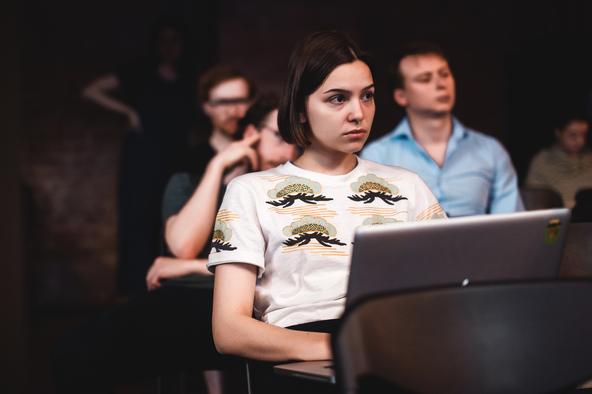LECTURE IN THE FRAMEWORK OF THE PHILOSOPHY CLUB AT THE WINERY

Doctor of philological Sciences, Professor of postcolonial feminism Department of gender studies, linköping University, Madina Tlostanova and founder and member of the working group of the international festival of activist art "Mediaudar" Tatiana Volkova will present the main elements of the ethic-aesthetic model decolonial turn.
post-colonial state as a specific form of human fate with all the consequences from this position, conditions, aspirations, sensitivities, complexes and liberation of the drives, received a variety of interpretations in the context and at the junction of the old disciplines. Moral aspects of postcolonial experience and representation were widely analyzed in different areas of aesthetic thought and created a number of interesting observations, concepts and conceptual metaphors, which have appeared over the last three decades and has neutralized the aesthetic mainstream. This is largely due to the fact that the very postcolonial theory is most often steeped in gaming and ironic forms of "exotization" and demonization of progressivism and Orientalism, without making a radical rejection of the (post)regulatory, the default Western aesthetics, but only filling her theoretical framework postcolonial material.
In the context of decolonising turn planned a more radical shift, which is associated with the problematization of the aesthetic of the mechanisms themselves and their ontological, cognitive and emotional bases and tools from the perspective of coloniality — the dark side or “the underside of modernity”. In particular, the criticism of coloniality of perception as a form of dependence on the dominant neoliberalists and “orientalisch” aesthetic perceptions and ways of its overcoming, not only through negative confrontation, but also through the positive creation of the world and Samovodene (“re-existence”) and after the liberation from colonialism of memory. Decolonial thought and the art of counter aesthetics to aesthesis that is interpreted differently from the models of M. Maffesoli, Gilles Deleuze or Jacques ranci? re. Within decolonial aesthesis special place is occupied by the dynamic model, marked by multiple intersectionality, where the traditional aspects of class, race and gender added a large number of additional intersections of otherness (from language to religion and ethnicity to the geopolitical context).
the lecture will be presented decoloniality the view of such characteristic of most models of aesthetic issues as the relationship of the rational and affective, the role of art in the production of knowledge, the debate of altermodernizma and transmodernism, a place of physicality as a direct source and instrument aesthesis, rethinking the category of the beautiful, the sublime decolonising mechanisms and ways of creating decolonising “community of the meaning and feelings”, a form of decolonization of the Museum as an institution for the production and imposition of certain models of knowledge. These and other questions will be addressed by analyzing number of works of contemporary art, cinema and literature.
Madina Tlostanova — doctor of philological Sciences, Professor of postcolonial feminism Department of gender studies, University of linköping, Sweden. The author of eight books and more than 200 articles on postcolonial studies, transcultural aesthetics, decolonialism-turn, non-Western feminism, post-socialist inheritance.
Tatiana Volkova — member of the Association of art Critics (AIS) and AICA (International Association of Art Critics) since 2010, master of the faculty of management in the sphere of culture, Moscow school of social and economic Sciences. With 2009 is the founder and curator of the project of activist art FAT. Since 2011 and is currently the moderator of the international festival of activist art "Mediaudar".
July 18 in the Philosophical club of the Winery will host a meeting with the philosopher, the founder of object-oriented philosophy, a Professor at American University in Cairo Graham Harman.
The topic of the lecture: “a New approach to the formalism in ethics, aesthetics, and metaphysics”



